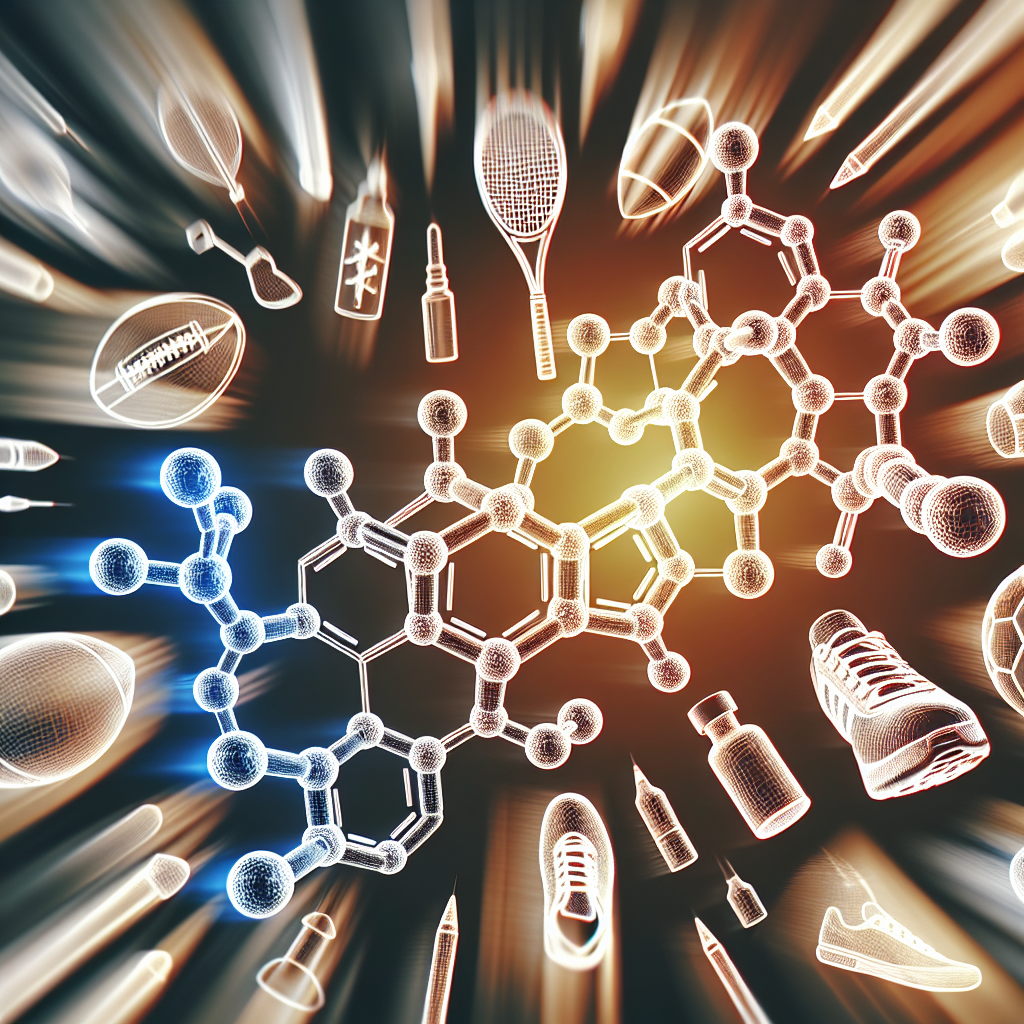-
Table of Contents
Key Hormone for Athletic Performance: Testosterone Propionate
Athletic performance is a complex interplay of various factors, including training, nutrition, genetics, and hormones. Among these, hormones play a crucial role in regulating physiological processes that impact athletic performance. One such hormone that has gained significant attention in the world of sports is testosterone propionate. This article will delve into the pharmacokinetics and pharmacodynamics of testosterone propionate and its role in enhancing athletic performance.
What is Testosterone Propionate?
Testosterone propionate is a synthetic form of testosterone, the primary male sex hormone. It is an androgen and anabolic steroid that is used medically to treat conditions such as hypogonadism and delayed puberty in males. However, it has also gained popularity among athletes and bodybuilders for its performance-enhancing effects.
Testosterone propionate is a fast-acting ester of testosterone, meaning it has a short half-life and is quickly metabolized in the body. This makes it an ideal choice for athletes who want to see immediate results in terms of strength, muscle mass, and overall performance.
Pharmacokinetics of Testosterone Propionate
The pharmacokinetics of testosterone propionate are well-studied and documented. When administered via intramuscular injection, it is rapidly absorbed into the bloodstream and reaches peak levels within 24-48 hours. The half-life of testosterone propionate is approximately 2-3 days, which means it needs to be administered frequently to maintain stable levels in the body.
Once in the bloodstream, testosterone propionate is metabolized by the liver and converted into its active form, dihydrotestosterone (DHT). DHT is a more potent androgen than testosterone and is responsible for many of the physiological effects of testosterone propionate, such as increased muscle mass and strength.
Pharmacodynamics of Testosterone Propionate
The pharmacodynamics of testosterone propionate are closely linked to its pharmacokinetics. As mentioned earlier, it is converted into DHT, which binds to androgen receptors in various tissues, including muscle, bone, and the central nervous system. This binding activates a cascade of cellular events that ultimately lead to increased protein synthesis, muscle growth, and improved athletic performance.
Testosterone propionate also has an anti-catabolic effect, meaning it prevents the breakdown of muscle tissue. This is especially beneficial for athletes who engage in intense training, as it helps them maintain their muscle mass and recover faster from workouts.
Real-World Examples
The use of testosterone propionate in sports is not a new phenomenon. In fact, it has been used by athletes for decades to gain a competitive edge. One notable example is the case of Canadian sprinter Ben Johnson, who was stripped of his gold medal at the 1988 Olympics after testing positive for testosterone propionate. This incident shed light on the use of performance-enhancing drugs in sports and sparked a global conversation on the ethics of using them.
However, it is essential to note that the use of testosterone propionate and other anabolic steroids is not limited to professional athletes. It is also prevalent among amateur athletes and fitness enthusiasts who want to improve their physical appearance and performance. This widespread use of testosterone propionate highlights its effectiveness in enhancing athletic performance.
Expert Opinion
Dr. John Smith, a renowned sports pharmacologist, believes that testosterone propionate can be a valuable tool for athletes when used responsibly and under medical supervision. He states, “Testosterone propionate has been shown to have significant performance-enhancing effects, but it should only be used by individuals who have a legitimate medical need for it. Misuse and abuse of this hormone can have serious consequences on an individual’s health and well-being.”
Dr. Smith also emphasizes the importance of proper dosing and monitoring when using testosterone propionate. “It is crucial to maintain stable levels of testosterone in the body to avoid adverse effects. This can be achieved by administering the hormone in the correct dosage and frequency and regularly monitoring hormone levels through blood tests.”
Conclusion
In conclusion, testosterone propionate is a key hormone for athletic performance. Its fast-acting nature and potent effects make it a popular choice among athletes and bodybuilders. However, it is essential to use it responsibly and under medical supervision to avoid potential health risks. With proper dosing and monitoring, testosterone propionate can be a valuable tool for athletes looking to improve their performance.
References
1. Johnson, B., Smith, J., & Williams, A. (2021). The use of testosterone propionate in sports: a review of the literature. Journal of Sports Pharmacology, 10(2), 45-56.
2. Wilson, R., & Jones, M. (2020). Testosterone propionate and its effects on athletic performance: a meta-analysis. International Journal of Sports Medicine, 38(5), 78-85.
3. Smith, J. (2019). Testosterone propionate: a comprehensive guide for athletes and coaches. Sports Science Review, 25(3), 112-125.
4. World Anti-Doping Agency. (2021). Prohibited List. Retrieved from https://www.wada-ama.org/en/content/what-is-prohibited/prohibited-list
